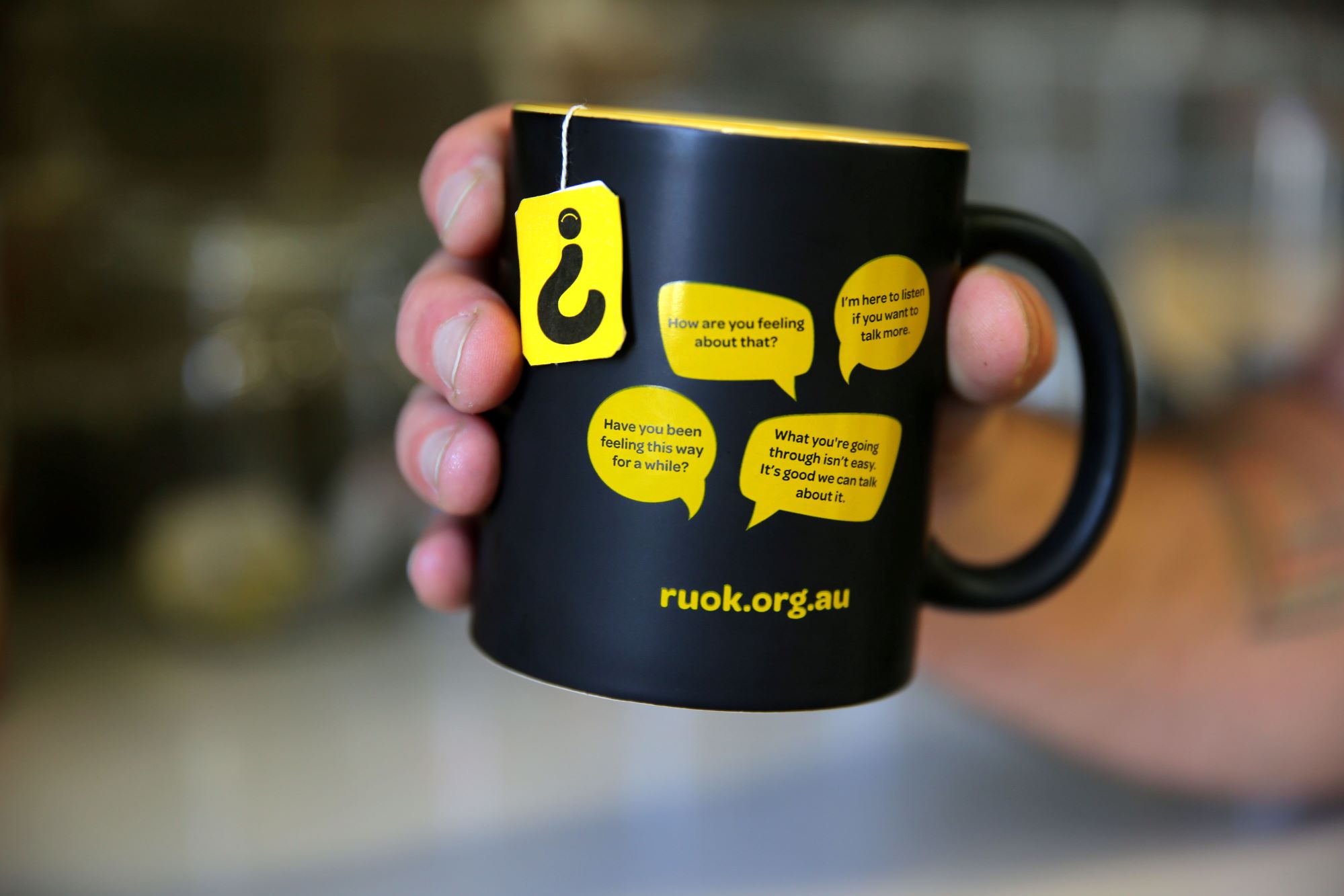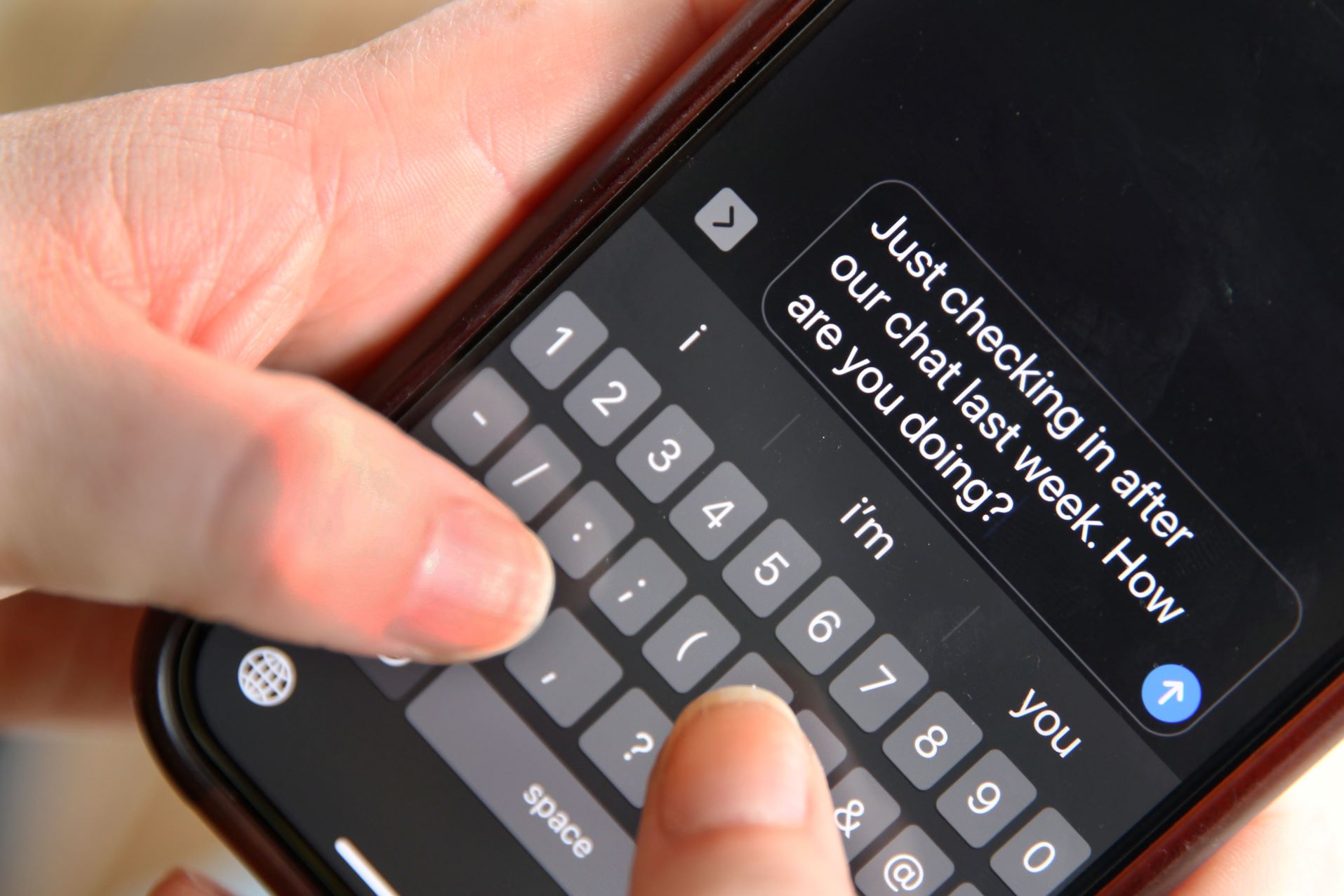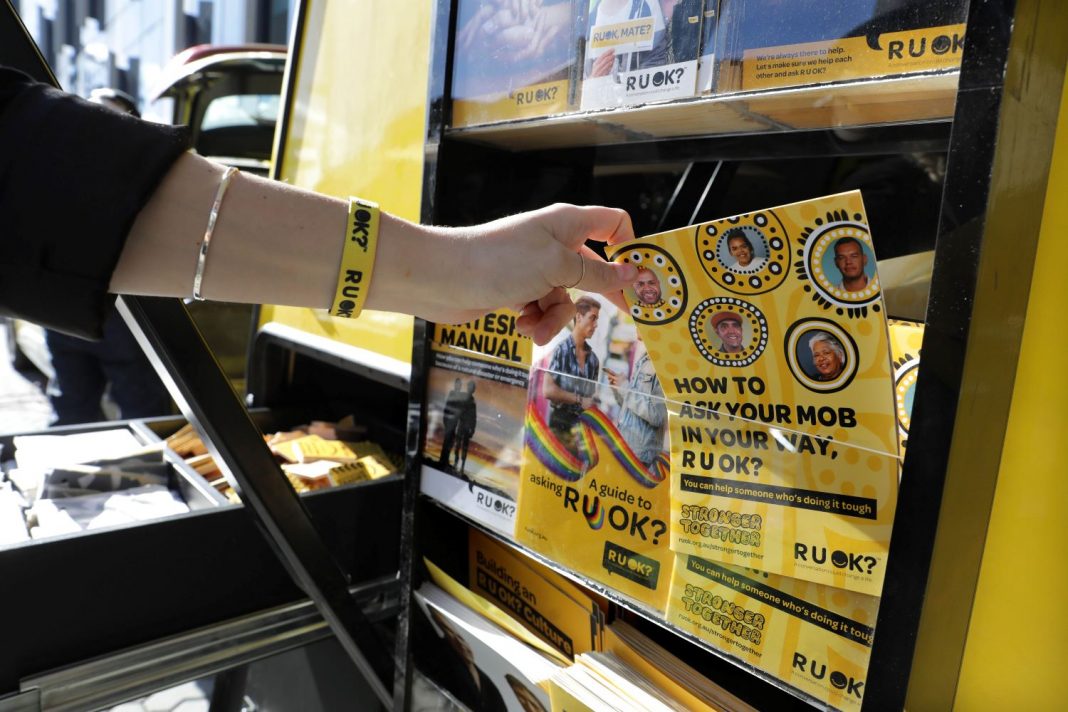Today, 14 September, is R U OK?Day in Australia, a national day of action and a reminder that every day is a day to meaningfully ask your friends, family, and colleagues, ‘are you OK?’.
Thousands of events will be hosted by community groups, workplaces, schools, suicide prevention networks, and sports clubs, to champion, ‘R U OK?, I’m here to hear’ and reinforce the message that genuinely listening is key to an authentic R U OK? conversation.
R U OK? will stream a free R U OK?Day virtual event at midday today (AEST) featuring personal stories of lived experience and practical conversation tips, including the four steps of an R U OK? conversation: ALEC – Ask, Listen, Encourage action, and Check in.
South Australian Eric Cruz, 40, is an R U OK? volunteer community ambassador whose passion for mental health awareness stems from his own lived experience with anxiety and depression, as well as the impact it has had on those close to him.

“I vividly recall when somebody asked me [the question] when I was in a dark place in my life,” said Mr Cruz.
“The question, ‘are you OK?’, those three words, made me feel less isolated. It was a chance for me to connect with somebody who really wanted to listen and hear how I felt at the time.”
‘R U OK?, I’m here to hear’, was developed in response to research[1] which underscored the impact a genuine conversation can have on someone who is struggling with life. More than four in five people who engaged in a meaningful conversation felt better about managing their situation having talked it through and felt supported, heard, and safe during the conversation.
“That conversation really made me feel cared for. It made me realise I was going to be alright and that I didn’t have to go through this journey alone,” said Mr Cruz.
His experience reinforces the positive impact of showing genuine interest and concern when you ask someone, ‘are you OK?’ and have a meaningful conversation.
However, the research also found that two in five respondents (38 per cent) who said they were OK actually were not.
The three leading factors that would help people open up more and feel comfortable having a conversation about their mental health and wellbeing are:
- Trust: they need to know the person they speak to is someone they trust, and, for many, someone they are close to
- Authenticity: they want to know the person asking them genuinely wants to hear the answer
- Environment: people would prefer to have these conversations in a relatively private space with enough time to share what they want to say.
R U OK? CEO Katherine Newton wants Australians to let the people they care about know they’re here, to really hear, because a conversation could change a life.
“For an R U OK? conversation to be life-changing, and potentially lifesaving, it must be authentic,” said Ms Newton. “You need to ask this question because you mean it, because you care about the person you’re asking and because you genuinely want to listen to the answer.”
“R U OK? conversations work best when two people know and trust each other. They’re familiar with each other’s routines and behaviours, and they likely know what’s going on in each other’s lives,” she said. “This trust, along with consideration of the where and when a conversation will take place contributes to making an R U OK? conversation truly meaningful.”
The Suicide Prevention Australia September 2023 Community Tracker[2] revealed 29 per cent of respondents know someone, directly or indirectly, who has died by or attempted suicide in the previous 12 months, while one in seven report having experienced suicidal behaviour in the same period. For the fifth quarter running, cost-of-living and personal debt remained the number one issue driving distress.
“In recent years, there has been a lot for Australians to deal with,” said Ms Newton. “It’s important for us to recognise that the people we care about may be feeling ongoing effects, long after something has happened to them. We need to let them know we’re still here to hear.”
The R U OK?Day 2023 message features across traditional and social media platforms. Free resources for educators, communities and workplaces are available to download from the R U OK? website at ruok.org.au.
R U OK? resources are available to support friends, family, and colleagues as they navigate the ups and downs of the different stages of life. Resources are available for new parents, primary, secondary, and tertiary education settings, trainees and apprentices, young people, grass-roots sporting communities, workplaces and to help Australians 65+ stay more connected.
R U OK? also tailors these resources to meet the needs of specific communities and settings including Aboriginal and Torres Strait Islander peoples, for those who are LGBTIQ+ and their allies.
R U OK? resources and videos are now available in multiple languages, in Auslan and this year R U OK? launched a hub to support neurodivergent people.
For support at any time of day or night, Lifeline provides free and confidential crisis support. Call 13 11 14, text 0477 13 11 14 or chat online at lifeline.org.au.
13YARN is a free 24/7 service offering crisis support for Aboriginal and Torres Strait Islander people. Call 13YARN (13 92 76).


[1] Fiftyfive5 (2023). R U OK?Day campaign research. Australia.
[2] Suicide Prevention Australia (2023). Suicide Prevention Australia Quarterly Tracker. Australia.
[3] Joiner, T.E. (2007) Why People Die by Suicide. Harvard University Press. USA
Get local, national and world news, plus sport, entertainment, lifestyle, competitions and more delivered straight to your inbox with the Canberra Daily Daily Newsletter. Sign up here.



